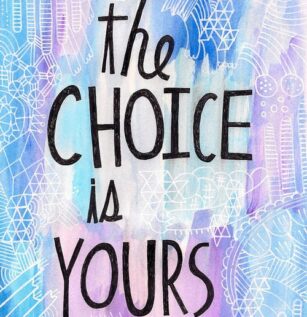by Dr. Tina Marcantel
 The other day I went to a buffet lunch in a nearby city. I had been there several times before, so I was very familiar with the food choices. The salmon there is good, so I took some of that. There was a spinach dish that was overcooked, as always, so I skipped it. The sweet potato casserole is too sweet for me, so I passed on that, as well. They have some fresh salad fixings and I took a generous portion of those.
The other day I went to a buffet lunch in a nearby city. I had been there several times before, so I was very familiar with the food choices. The salmon there is good, so I took some of that. There was a spinach dish that was overcooked, as always, so I skipped it. The sweet potato casserole is too sweet for me, so I passed on that, as well. They have some fresh salad fixings and I took a generous portion of those.
The point of a buffet is that we’re offered choices. We can pick foods we’re interested in–things we’ve experienced before and enjoyed or leave those we didn’t like. When we see dishes we’ve tasted before, we don’t spend time focusing on all the negative things that we disliked about them. We don’t condemn or criticize them or think, “How could anyone possibly think that tastes good?” We certainly don’t put it on our tray and eat it! Instead, we choose the foods we think we’ll enjoy and leave the others for those who have different tastes than ours.
Every day life offers us a similar buffet, so shouldn’t we choose positive experiences instead of negative ones?
Consider this one example. You are with a friend who has some very different opinions than you about certain topics. During an otherwise pleasant visit, she makes a statement that you strongly disagree with about a political issue. From past experience, you know how this conversation will go if you choose to “correct” her opinion. You now have a choice: do you engage in an argument that will leave both of you tense and with bruised feelings, or do you simply let it go and move on to another topic?
Before putting a large helping of judgment and anger on your plate, you might want to think about a few things.
For each of us, our life experiences have given us different perspectives and understandings about the world around us. It’s okay to respect others’ opinions without feeling the need to agree with them or engage in a debate. In fact, if a different opinion triggers strong emotions in us, it may be a good opportunity for some self-reflection about why we may feel threatened by that person’s ideas.
Observing a person’s opinions without judgment (or becoming more aware when I am judging) is a big step toward freedom. I’m free to be myself and allow others to be themselves, without feeling the need to convince them that I am right and they are wrong. I simply choose to allow them their opinion and avoid the negative experience of criticizing them. I pass up that dish of judgment and criticism and move on to another conversation that we may both find enjoyable.
Constant judgment and criticism of others is actually an unhealthy state of being because
- It takes so much energy
- It leaves us with a feeling of heaviness and fatigue
- We feel stuck in the exact energy of others that makes us feel bad
- It creates physical tension in our bodies, which affects the nervous system, which affects—well, everything.
This month I encourage you to choose healthy experiences from the buffet of life. Bon appetit!





